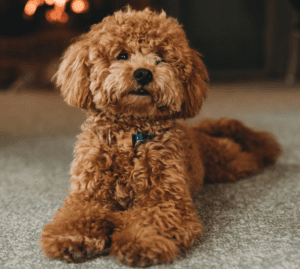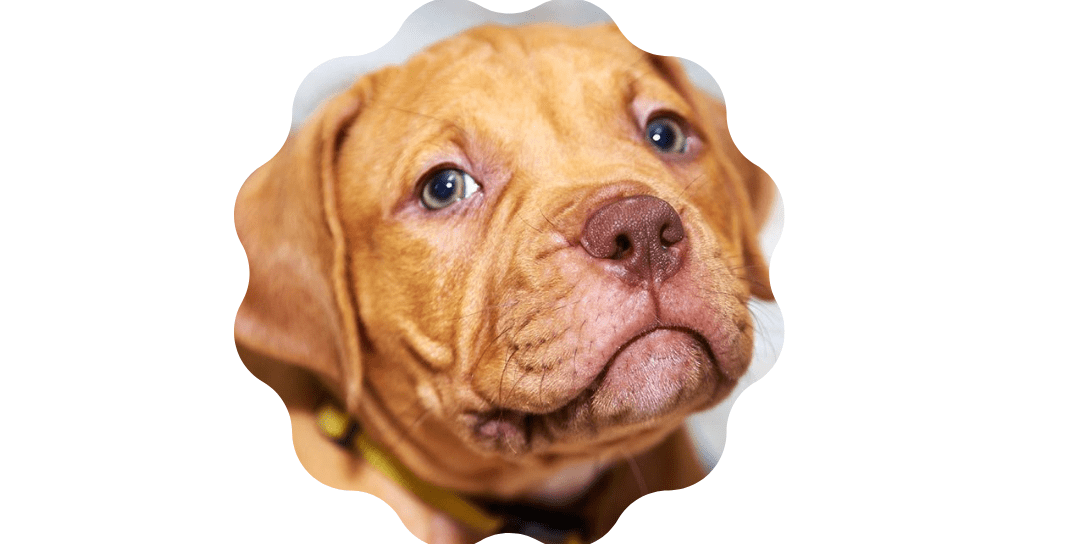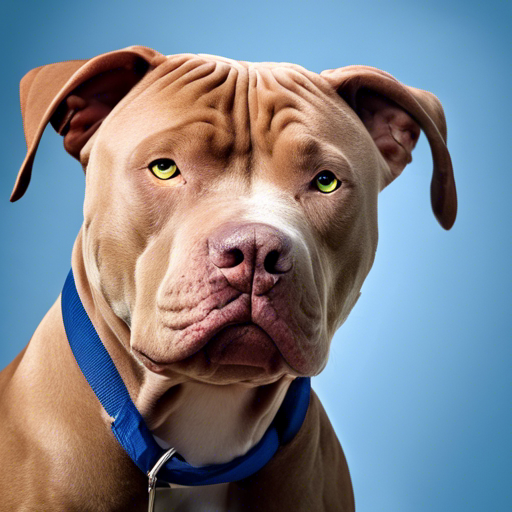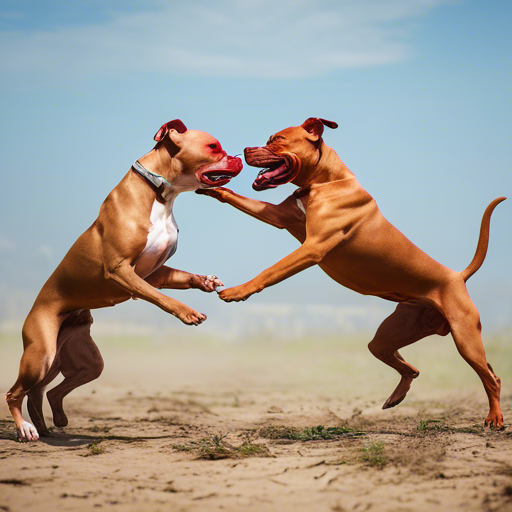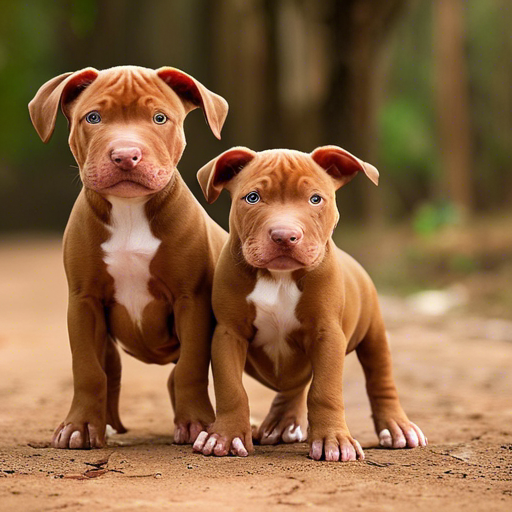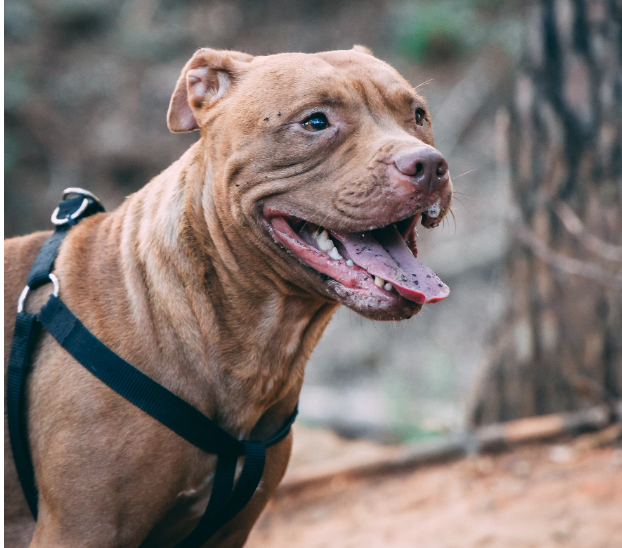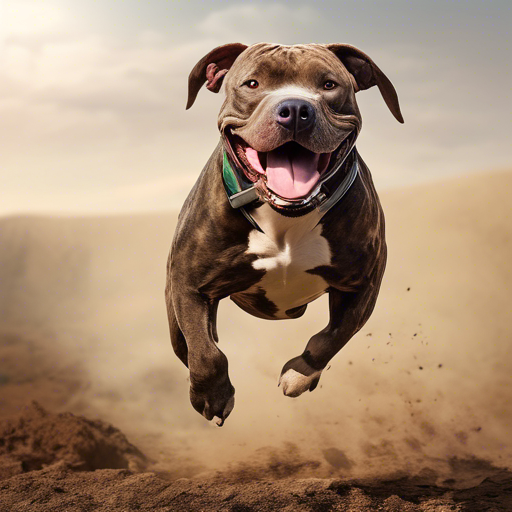Is The Red Nose Pitbull Dog Good For Families
Yes, Red Nose Pitbull Dogs Are Good For Families But Responsible Ownership Is Most Important For All Dogs As A Pitbull.
The Red Nose Pitbull, like any other breed, can be good for families depending on various factors such as temperament, training, and socialization. Here are some considerations:
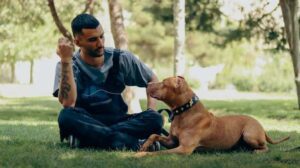
Temperament:
Red Nose Pitbulls can be affectionate, loyal, and gentle when properly raised and socialized. They are known for their love of people and often form strong bonds with their families.
Red Nose Pitbulls are often celebrated for their affectionate and loyal nature, characteristics that can make them excellent companions for families. When raised and socialized correctly, these dogs can exhibit a gentle demeanor that endears them to those around them.
One of the standout traits of Red Nose Pitbulls is their love for people. They have a natural affinity for human interaction and often thrive when they are able to form strong bonds with their family members. Their affection isn’t limited to just one person; rather, they tend to show love and loyalty to all members of their household. This makes them particularly well-suited for families with multiple members, as they can spread their affection and companionship generously.
Their gentle nature, when properly nurtured, allows them to interact well with both adults and children alike. However, it’s crucial to supervise interactions between Red Nose Pitbulls and young children, as with any dog breed, to ensure safety and teach proper handling and respect for the dog’s boundaries.
Moreover, their loyalty knows no bounds. Red Nose Pitbulls are known for their unwavering devotion to their families, often going to great lengths to protect and care for them. This loyalty can create a deep bond between the dog and its human companions, fostering a sense of security and companionship within the family dynamic.
Ultimately, the temperament of a Red Nose Pitbull is shaped by various factors, including genetics, upbringing, and socialization. Responsible ownership, proper training, and providing a loving environment are essential in nurturing the affectionate, loyal, and gentle nature that these dogs are known for. When given the care and attention they deserve, Red Nose Pitbulls can truly thrive as valued members of the family, enriching the lives of those around them with their unconditional love and devotion.
Training:
Consistent and positive training is essential for any dog, including Red Nose Pitbulls. Early obedience training and socialization are crucial to ensure they develop good manners and behavior around family members and other pets.
Training plays a pivotal role in shaping the behavior and temperament of Red Nose Pitbulls, just as it does for any dog breed. Consistency and positivity are key elements in training these intelligent and eager-to-please dogs.
Early obedience training is especially important for Red Nose Pitbulls. Starting training from a young age helps establish boundaries, teach basic commands, and instill good manners. This early foundation sets the stage for a well-behaved and well-adjusted adult dog. Through positive reinforcement techniques, such as praise, treats, and rewards, Red Nose Pitbulls can quickly learn desired behaviors and responses.
Socialization is another crucial aspect of training for Red Nose Pitbulls. Exposing them to various people, animals, environments, and situations from puppyhood helps them become confident and well-adjusted adults. Proper socialization reduces the likelihood of fearfulness, aggression, or anxiety in unfamiliar situations. It also promotes positive interactions with family members, other pets, and visitors.
Training should be a continuous process throughout the dog’s life. Consistent reinforcement of commands and behaviors ensures that Red Nose Pitbulls maintain good manners and obedience. It’s important to remain patient, firm, and consistent in training, as these dogs respond well to clear expectations and positive feedback.
Additionally, incorporating mental stimulation into training sessions is beneficial for Red Nose Pitbulls. Engaging activities such as puzzle toys, scent work, and obedience training exercises keep their minds active and prevent boredom, which can lead to destructive behaviors.
Training should always be conducted in a safe and positive environment. Harsh or punitive methods can undermine trust and lead to behavioral issues. Instead, focusing on positive reinforcement techniques helps build a strong bond between the dog and its owner while shaping desirable behaviors.
By prioritizing consistent and positive training methods, Red Nose Pitbulls can develop into well-mannered, obedient, and socialized companions that enrich the lives of their families. With dedication, patience, and love, owners can help their Red Nose Pitbulls reach their full potential as valued members of the household.
Socialization:
Introducing the Red Nose Pitbull to different people, animals, and environments from a young age can help them become well-adjusted and confident adults. Proper socialization can reduce the likelihood of behavioral issues.
Socialization is a fundamental aspect of raising a well-rounded and confident Red Nose Pitbull. Introducing them to a variety of people, animals, and environments from a young age lays the groundwork for positive social interactions and helps them navigate the world with confidence.
Early socialization is crucial for Red Nose Pitbulls to develop into well-adjusted adults. Exposing them to different experiences during their critical developmental stages, typically between 3 weeks and 14 weeks of age, helps shape their behavior and responses to various stimuli. This period is when puppies are most receptive to new experiences and learning.
Introducing Red Nose Pitbull puppies to people of different ages, genders, ethnicities, and appearances helps them learn to be comfortable and accepting of diverse individuals. Positive interactions with strangers, including gentle handling and treats, teach them that meeting new people is a pleasant experience.
Socializing Red Nose Pitbulls with other animals, including dogs, cats, and small pets, helps them learn appropriate social cues and behaviors. Supervised playdates and interactions with well-behaved animals allow them to develop important social skills and learn how to communicate effectively with their peers.
Exposure to various environments, such as parks, beaches, city streets, and busy public places, exposes Red Nose Pitbulls to different sights, sounds, and smells. This helps desensitize them to potential triggers and builds their confidence in unfamiliar surroundings. It’s important to start with low-stress environments and gradually increase the level of exposure as the puppy becomes more comfortable.
Proper socialization not only reduces the likelihood of behavioral issues, such as fearfulness, aggression, and anxiety, but also promotes positive interactions with people and animals throughout the dog’s life. Well-socialized Red Nose Pitbulls are more likely to exhibit friendly, confident, and well-mannered behavior in various situations, making them enjoyable companions for their families and members of the community.
Consistency and patience are key when socializing Red Nose Pitbulls. It’s essential to provide positive reinforcement, praise, and rewards for desired behaviors during socialization experiences. Additionally, monitoring the puppy’s body language and comfort level helps ensure that interactions are positive and not overwhelming.
By prioritizing early and ongoing socialization, Red Nose Pitbull owners can help their dogs develop into confident, well-adjusted, and socially adept companions who positively contribute to their families and communities.
Exercise:
Pitbulls, including the Red Nose variety, are energetic dogs that require regular exercise and mental stimulation. Engaging in activities like walks, runs, and play sessions can help keep them physically and mentally healthy.
Exercise is a vital component of caring for Red Nose Pitbulls, as it helps maintain their physical health, mental well-being, and overall happiness. Like all Pitbulls, the Red Nose variety is known for its high energy levels and requires regular opportunities to burn off excess energy and stimulate their minds.
Engaging in various activities such as walks, runs, and play sessions is essential to meet the exercise needs of Red Nose Pitbulls. These activities not only provide physical exercise but also mental stimulation, which is crucial for preventing boredom and undesirable behaviors.
Regular walks are an excellent way to fulfill the exercise needs of Red Nose Pitbulls while also providing opportunities for socialization and mental stimulation. Exploring different environments, encountering new sights and smells, and interacting with people and other animals enriches their lives and keeps them mentally engaged.
Running or jogging with a Red Nose Pitbull is another effective way to satisfy their high energy levels. These dogs have a natural inclination to run and chase, making them ideal jogging companions for active owners. Running together not only provides physical exercise but also strengthens the bond between the dog and its owner.
Play sessions are essential for Red Nose Pitbulls to engage in interactive and stimulating activities. Games such as fetch, tug-of-war, and agility training not only provide physical exercise but also challenge their minds and reinforce obedience and problem-solving skills. Interactive toys and puzzles can also keep them mentally engaged and entertained, especially during times when outdoor exercise may be limited.
In addition to physical exercise, mental stimulation is essential for the well-being of Red Nose Pitbulls. Engaging in activities such as obedience training, scent work, and trick training helps keep their minds sharp and prevents boredom-related behaviors such as chewing or excessive barking.
It’s important to tailor the exercise routine to meet the individual needs and preferences of the Red Nose Pitbull. Some dogs may require more vigorous exercise, while others may be content with shorter, less intense activities. Paying attention to the dog’s cues and adjusting the exercise routine accordingly ensures that their needs are adequately met.
Consistency is key when it comes to providing exercise for Red Nose Pitbulls. Establishing a regular exercise routine and incorporating various activities into their daily schedule helps ensure that they receive the physical and mental stimulation they need to thrive. By prioritizing exercise and mental stimulation, owners can help their Red Nose Pitbulls lead healthy, happy, and fulfilling lives.
Supervision:
It’s important to supervise interactions between Red Nose Pitbulls and young children, as with any dog breed. Teach children how to properly interact with the dog, including respecting their space and not engaging in rough play.
Supervision is a crucial aspect of ensuring the safety and well-being of both Red Nose Pitbulls and young children. While Red Nose Pitbulls can be gentle and affectionate companions, it’s essential to recognize that they are powerful dogs with strong instincts. Teaching children how to properly interact with the dog and providing supervision during their interactions helps prevent accidents and promotes positive relationships between the dog and the child.
First and foremost, it’s important to educate children about the proper way to interact with dogs, including Red Nose Pitbulls. Teaching children to approach the dog calmly and respectfully, and to avoid sudden movements or loud noises, can help prevent fear or anxiety in the dog. Additionally, children should be instructed to avoid disturbing the dog while it is eating, sleeping, or caring for its puppies, as these are situations where dogs may be more likely to exhibit protective behaviors.
Respecting the dog’s space is another crucial aspect of safe interaction. Children should be taught to give the dog space when it indicates that it wants to be left alone, such as moving away or avoiding eye contact. Encouraging children to recognize and respect the dog’s body language signals, such as growling, lip licking, or stiffening, can help prevent potential conflicts or misunderstandings.
Rough play should be discouraged, as it can escalate into unintentional injuries for both the child and the dog. Children should be taught to play gently with the dog, using appropriate toys and avoiding activities that may overstimulate or agitate the dog. Supervising playtime and intervening if necessary can help ensure that interactions remain safe and positive for both the child and the dog.
It’s important for parents or guardians to actively supervise interactions between Red Nose Pitbulls and young children at all times. This means being present and attentive during playtime, meal times, and any other interactions between the child and the dog. Supervision allows adults to intervene quickly if necessary and prevent potential accidents or conflicts from occurring.
By providing proper supervision and educating children about safe interaction with Red Nose Pitbulls, families can foster positive relationships between children and dogs while ensuring the safety and well-being of all members of the household. With guidance and supervision, children can develop a lifelong respect and understanding for dogs, leading to fulfilling and enriching relationships with their furry companions.
Individual temperament:
Remember that each dog is an individual with its own personality traits. While Red Nose Pitbulls can be great family pets, there can be variations in temperament among individuals. Some may be more laid-back and gentle, while others may be more energetic and playful.
Recognizing the individual temperament of Red Nose Pitbulls is essential when considering them as family pets. While the breed as a whole is often known for its affectionate and loyal nature, it’s crucial to understand that each dog is unique and may exhibit different personality traits.
Just like people, Red Nose Pitbulls can vary greatly in temperament, energy levels, and behavior. Some may be naturally laid-back and gentle, preferring to lounge around the house and enjoy cuddle time with their family members. These dogs may be more suitable for families with young children or elderly individuals who prefer a calmer companion.
On the other hand, some Red Nose Pitbulls may be more energetic and playful, exhibiting a high level of enthusiasm and zest for life. These dogs may thrive in active households where they have plenty of opportunities for exercise, play, and mental stimulation. They may enjoy engaging in activities such as hiking, running, or playing fetch with their human companions.
Understanding the individual temperament of a Red Nose Pitbull is essential for ensuring a good match between the dog and its potential family. It’s important for prospective owners to consider factors such as their lifestyle, activity level, and preferences when selecting a dog with a compatible temperament.
Furthermore, proper socialization, training, and environment play crucial roles in shaping the temperament of a Red Nose Pitbull. Early socialization helps expose the dog to a variety of people, animals, and experiences, which can help them develop into well-rounded and confident individuals. Positive reinforcement training techniques can also help reinforce desirable behaviors and build a strong bond between the dog and its owner.
Ultimately, whether a Red Nose Pitbull is the right fit for a particular family depends on various factors, including the dog’s individual temperament, the family’s lifestyle, and their ability to provide the care and attention the dog needs. By recognizing and respecting the individuality of each dog, families can ensure a harmonious and fulfilling relationship with their Red Nose Pitbull companion.
The Top 5 Best Family Dogs
Labrador Retriever
Labrador Retrievers are renowned for their friendly demeanor and gentle nature, making them excellent family pets. Their playful disposition and loyalty endear them to both children and adults.

Golden Retriever
Golden Retrievers are known for their intelligence, obedience, and affectionate nature. They thrive in family environments and excel in activities like obedience training and retrieving games.
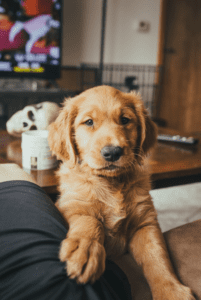
Beagle
Beagles are small-sized dogs with big personalities. Their playful and curious nature makes them delightful companions for families with active lifestyles.
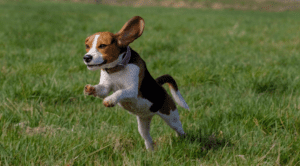
Bulldog
Despite their intimidating appearance, Bulldogs are affectionate and docile dogs, well-suited for families. They bond closely with their owners and are known for their protective instincts.
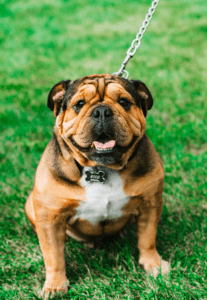
Poodle
Poodles come in various sizes, including standard, miniature, and toy, offering options for different living situations. Their hypoallergenic coats and intelligence make them popular choices for families with allergies or small children.
